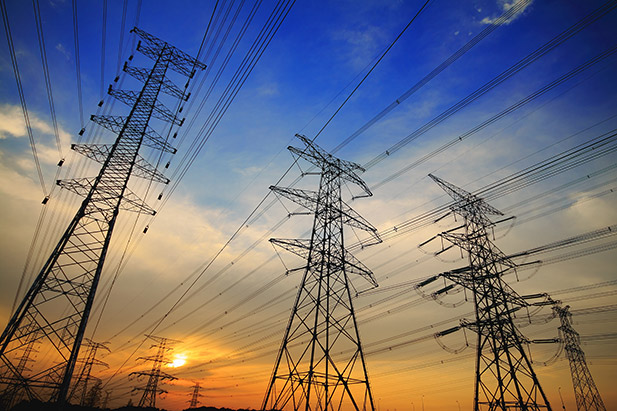Power play: University asserting leadership on smart energy innovation
International experts plot future energy directions at Oshawa conference
September 18, 2017

In the developed world, reliable access to electricity is a quality-of-life factor most consumers take as a given. Yes, homeowners and industry pay for power. Rarely do we think about the infrastructure in place to oversee energy generation, transmission and distribution. But, when the power goes out, we certainly take notice.
The electrical grid is a complex, interactive network that endeavours to meet supply with demand. Engineers, government, utility operators and energy academics constantly seek ways to improve the grid’s efficiency and resilience.
Enter the University of Ontario Institute of Technology. From the day it opened in 2003, the university built its research, educational and leadership capacity in alternative energy and clean energy research.
For several years running, the international energy community has convened in Oshawa where the university hosts the Smart Energy Grid Engineering (SEGE) Conference, sponsored by the Institute of Electrical and Electronics Engineers (IEEE). The August 2017 SEGE conference attracted academics and industry experts from across the globe to campus.
“Smart energy grids promise to enhance the operational efficiency of nationwide energy and power supply,” says Hossam Gaber, PhD, Professor, Faculty of Energy Systems and Nuclear Science and Faculty of Engineering and Applied Science. “Most countries have a lot of work to do on improving existing infrastructure, and we are at a key threshold when it comes to decisions on future investment. Part of the solution involves bringing together smart energy experts from around the world to share ideas about best practices.”
SEGE 2017 explored the latest research and technologies in:
- energy storage
- information and communications
- micro-energy grids
- safety and security
- transmission/distribution lines
- transportation electrification
SEGE 2017 organized regular and student best paper awards to encourage the innovation in smart energy from those just entering the field. University of Ontario Institute of Technology Nuclear Engineering PhD candidate Yahya Koraz received an award for one of the best student papers.
“From infrastructure to engineering design methods to energy storage to security issues, this is all about finding ways to make our grid systems ‘smarter’,” says Dr. Gaber. “Our university has the capacity and expertise to be an international focal point for these important discussions about the future.”
Get smart on smart energy:
- Smart energy grids are modernized energy networks that use automated digital information and communications technology to control the production and distribution of electricity to maximize efficiency between utilities and interconnected energy grids.
- Existing power grids offer one-way power supply with limited ability to integrate renewable energy sources and storage profiles. Smart grid is a two-way power supply (bi-directional distribution and transmission) that allows end users to sell electricity back to the grid to help meet local or regional demand or balance loads on the electricity grid.
- Systems technology can constantly monitor the behaviour of electricity providers and consumers, and then act upon that information to enhance efficiency, security, reliability and safety with minimum environmental impact.
- Smart energy grids have applications for numerous energy utilities such as natural gas, thermal energy, hydroelectricity and nuclear energy.
SEGE 2017 by the numbers:
- 19 countries represented
- 11 guest speakers from academia and industry across North America, Europe and Asia
- 10 sessions over four days
- 66 academic papers presented
SEGE 2017 co-sponsors:
- Hydro One
- Ontario Centres of Excellence
- Institute of Electrical and Electronics Engineers (IEEE)
- IEEE Toronto Section
- IEEE Smart Grid
- Nuclear and Plasma Sciences Society (Toronto chapter)
Related link:



